The Mr. Magazine™ interview: Seventeen, a brand that’s helping today’s teens change our world

For 74 years, Seventeen magazine has been the go-to resource for teens and young people, inspiring confidence and self-awareness throughout its pages. Support for activism and causes that are important to teens has always been a part of the brand’s DNA and after almost three-quarters of a century that hasn’t changed. In fact, on March 24, the brand chartered a bus to take 30 New York City teen activists from organizations like Girl Up, New Yorkers Against Gun Violence and IGNITE – who would otherwise not be able to participate – to the march in Washington, D.C.
At the march, Seventeen hosted a GIF video booth on Pennsylvania Avenue that encouraged participants to post a message on why they were marching, which they could share on social media. For every GIF posted from the booth, Seventeen’s parent company, Hearst, promised to donate US$1 to Everytown for Gun Safety. The teens all posed in front of the Hearst building before setting off for Washington, DC and continued the photo story once they arrived. It was lots of pictures, lots of camaraderie, and lots of standing up for their cause.
Seventeen extensively covered the aftermath of the Parkland shooting, and has been a platform to inform teens and share teen perspectives around ending gun violence. The bus charter was a physical extension of that platform – giving young people an opportunity to participate in a movement that affects their lives, and creating an activist alliance for girls who want to make a difference.
Joey Bartolomeo is executive editor and Kristin Koch is digital director of Seventeen. I spoke with both recently and we talked about the avidly active stance the brand has on standing by teens and what’s important to them. From the brand’s participation in The March for Our Lives in Washington, DC to its “Perfectly Me” initiative, which promotes body confidence in teens, Seventeen is ready to tackle the issues right alongside its readers. Joey and Kristin are mothers of young children as well, and are as passionate about the rights of teens as their brand is. It was a vibrant conversation about accepting who we are and encouraging and supporting those that stand up for their rights.
So, I hope that you enjoy this look into the world of teens and all they hold dear enough to stand up for, and their right to do so, the Mr. Magazine™ interview with Joey Bartolomeo, executive editor and Kristin Koch, digital director, Seventeen magazine.
But first the sound-bites
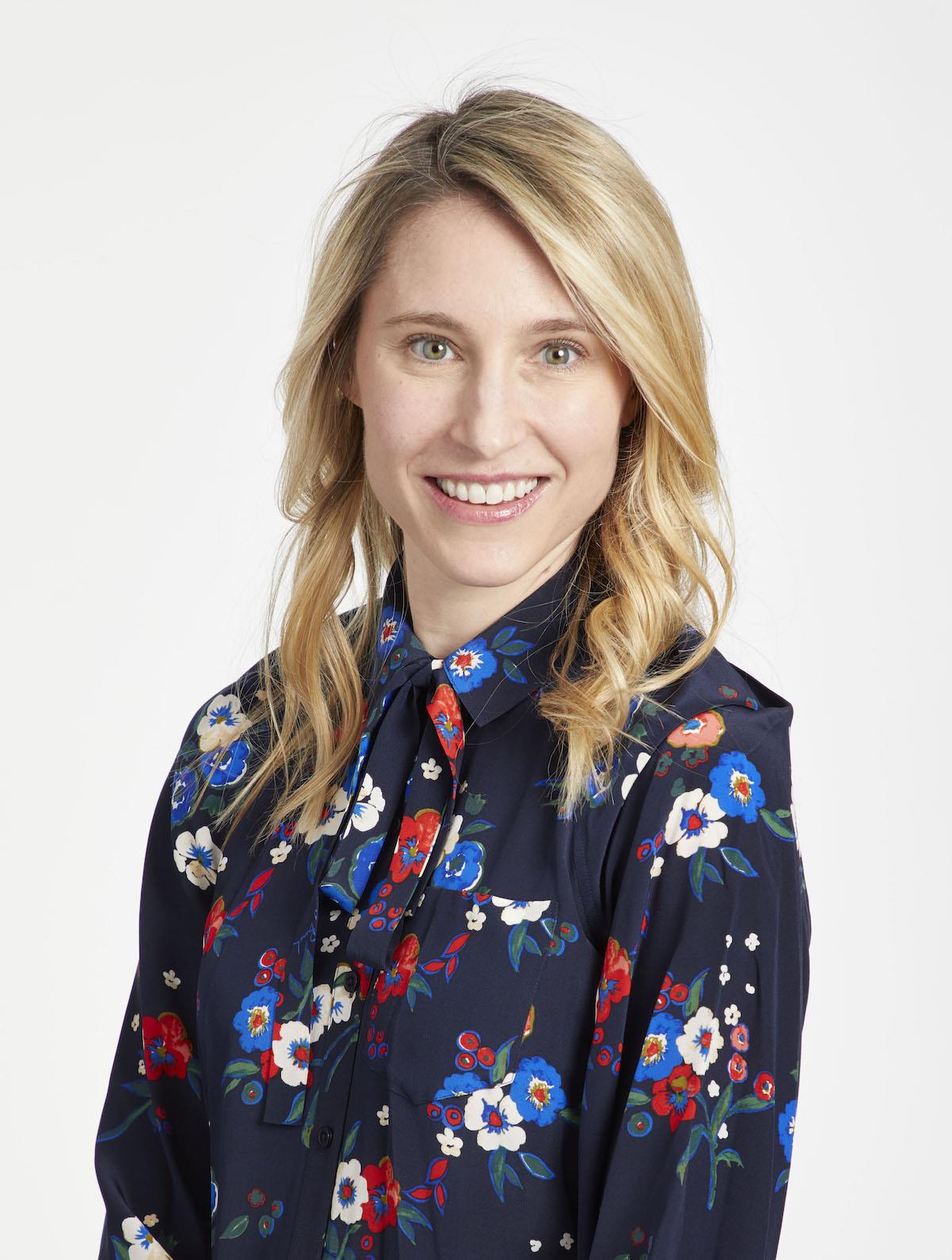
Kristin Koch
On the status of the Seventeen brand audience today (Kristin Koch): Our audience is incredibly powerful. Social media has enabled them to activate in new ways. In addition, obviously, we’re still seeing them mobilize in real person and go to organized marches, protests and walkouts, but now they’re able to reach a larger audience. They’re able to have their voices stretch across multiple platforms using social media. They’re able to tap into celebrities; they’re able to talk to politicians; they’re able to get their voices and their messages really heard.
On why social media savvy teens today need a brand so rooted in print, such as Seventeen (Joey Bartolomeo): They’re still getting a lot of information from a lot of places and when you’re talking about print in particular, we’re kind of tuning out the noise for them. And so they come to print to really get a more curated experience and to find out things that they may not be getting on social media or from their friends. We’re this big sister that’s there for them. The things that we cover in the magazine and online are sometimes similar and sometimes different. There are still things in the magazine that are there for them. And who doesn’t want to see themselves in print, let’s be honest. It’s very special.
On the magazine being a friend with benefits, but with a PG rating (Joey Bartolomeo): I think that’s a very good way to put it. We cover topics related to sex, but we do it in such a way that we’re definitely not R-rated. We just want girls to have the information they need to make smart choices, so we’re not telling them how to have sex, we’re telling them what information they need to know about their bodies and their minds before they go and make a decision that could really affect their lives.
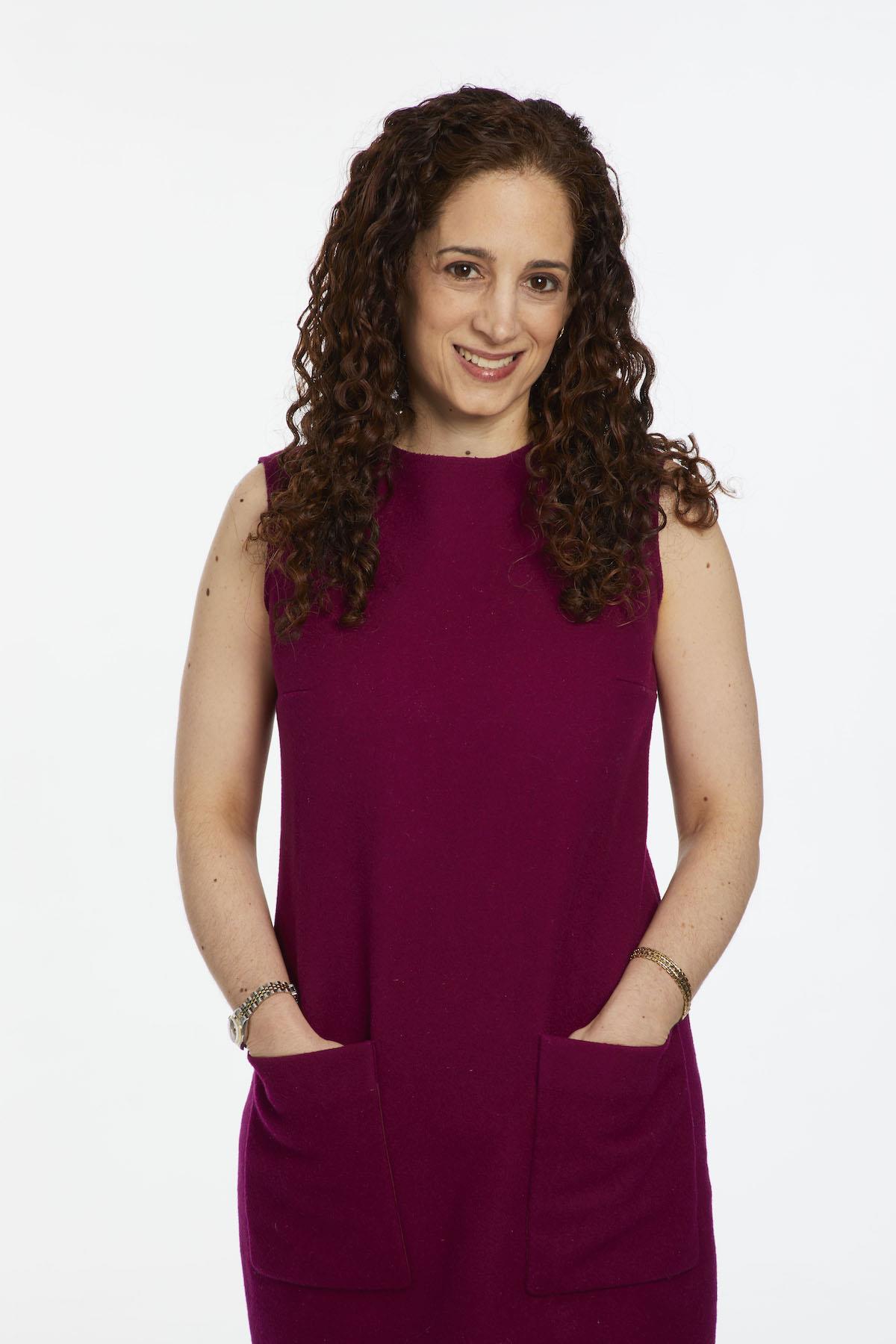
Joey Bartolomeo
On Seventeen’s involvement with the March for Our Lives movement in Washington, DC and whether we’re seeing a change in the type of content teen magazines cover:
Joey Bartolomeo: These are things that Seventeen has covered from the start of the magazine. Activism, helping out different people, using your voice; so, no, I think that the idea of teens speaking up and fighting for things has been something that Seventeen has been behind for decades. Sometimes you might hear more about it in the media now, but we know that Gen Z, and those are our readers right now, they’re so into this. They’re activists, and we’ve been highlighting that for years now. And the millennials before that. So, it’s not as new as people think it is. We know that they’ve been doing this and Seventeen has been doing this for decades.
Kristin Koch: Teens have always been at the helm of these movements, students advocating for change. Of course, today they have many more tools to get their voices out there. And we’re really the teens’ guide to navigating; high school and college are some of the trickiest, most confusing times in your life. We know teens are smart and savvy, but they’re still looking for guidance and they’re still looking to us for answers.
On whether Seventeen is a reflection of teens today in the United States or is it an initiator of things for teens:
Joey Bartolomeo: We really let the girls lead us on a lot of things. We see what they’re interested in and what they’re fighting for. And obviously, we look around and we know what the big issues are in the world of teens. So, we really try to follow their lead. We’re not pushing an agenda on them; we see what’s important to them, whether it’s letting transgender kids in high schools use the bathroom of their choice, or getting proper sex-ed in their schools. There was one girl that we featured who was protesting the Dakota Access Pipeline. These are things that are meaningful to teens and we just want to help show that if you’re a teen, maybe you can’t vote or maybe you don’t think that you have any power, but you really do and you can effect change.
Kristin Koch: We’re also helping to bring to light issues that really matter to them and should matter to them. And we’re making sure that they’re aware of everything that’s affecting them. And as Joey said, they may not be able to vote, but we want to make sure that they’re empowered to have access to information and to be able to know about the issues that are impacting their lives. So, we’re covering these issues and bringing them to the teens, but we’re coming to them with a perspective of what matters to them, how is this going to affect them, how can they create change as teens, not as adults.
On how easy or hard it was to become a multiplatform brand being so rooted in print:
Kristin Koch: Obviously, it’s always a challenge to be constantly launching on new platforms, teens are really at the forefront of what the newest technologies and newest social media platforms are. They’re constantly finding new ways to connect. As their parents jump onto one platform, they may jump onto the next. So, we always have to be on top of what’s new, but it has really enabled us to spread our message and to reach a greater audience, and reach teens on different platforms.
Joey Bartolomeo: And one cool thing that we’ve done in print is to start including Snapcodes with some of our stories. What we’ll do is have a story and then it’ll drive to…we had one with a playlist, and it’ll drive to a story on our website where they can check out all of the music on the playlist. So, we know that they may have their phones in their hands while they’re reading the print magazine, and we’re giving them a really full experience and coming at them in a way that they actually consume things.
On the secret of Seventeen’s continued success while other mass market teen magazines in print have folded (Joey Bartolomeo): First of all, having Hearst behind us is amazing. We have great support from David Carey and Joanna Coles and everybody. They have all been really behind us and they were really behind us in getting the bus for the march and I think that’s so important, that they see the value in the Seventeen brand and what it means to people. Another thing is Seventeen, like you said, has been around for 74 years. So, there are a lot of people in the world, in this country, who have read Seventeen. And they know that it’s a brand that they can trust. They read it as teens; they’re daughters read it as teens; and they want their kids to read it.
On what’s next for Seventeen:
Kristen Koch: What’s so exciting about Seventeen is as you said, this brand holds such a special place in so many people’s hearts, and so we’ve been able to really keep our core areas, while also expanding, and every day there’s something new. We’ve launched on Musical.ly; we’ve launched on Snapchat; we’re going to be ramping up on Snapchat; we tend to invest more in activism, such as the bus. It was a huge experience that we brought to the teens. We did a video booth at the march as well, where students could take videos explaining why they were marching. Hearst donated money to Everytown for Gun Safety every time a video was posted. That was a really exciting way that we could get involved in the march and also to help show that their voices mattered and their marching mattered and to help raise money for a great cause.
Joey Bartolomeo: And something that I think sets Kristin and I apart from other brands or other teams here, is that we actually do work a lot together So for Seventeen print and digital, we’re always communicating, we have regular meetings; we really try to see how we can sync up in special ways. And one of those things that is really important to us is our “Perfectly Me” initiative, which promotes body confidence and it’s something that we do every October.
On any fear of backlash, such as hashtag fake news, hashtag fake Seventeen (Kristin Koch): No, Seventeen is such a trusted brand and what we’ve seen is that our audience is so excited to get information from us and to work with us. They care about the issues that we’re talking about. In large part, as Joey said, we are amplifying their voices; we’re talking to them; we’re featuring them; we’re telling their stories. The world sort of woke up to the idea that teens are political, but they’ve always been. They’ve always been really invested in this, and I think everyone trusts Seventeen. We have amazing stories; we have great research, and we’re really here to guide teens along the way.
On what someone would find them doing if they showed up unexpectedly one evening at her home:
Joey Bartolomeo: I am probably watching Riverdale on the DVR because I need to catch up on that show. I like to make sure that I’m in tune with what our readers are interested in, but I also do think Riverdale is a great show. After that, I’m probably asleep, because I have a three and a half year old. So, it’s long days.
Kristin Koch: I’m probably right alongside Joey, binge watching one of our shows that our audience is obsessed with, Riverdale being one of the big ones. Or we programme 24/7 on digital, so I’m probably still making sure there is no breaking news. If a celebrity our readers are following is getting married, I am going to be making sure that my entire team is posting, checking our Instagram, watching YouTube videos, making sure we’re on top of everything. After that, probably like Joey, going to bed. I have a young son too. (Laughs)
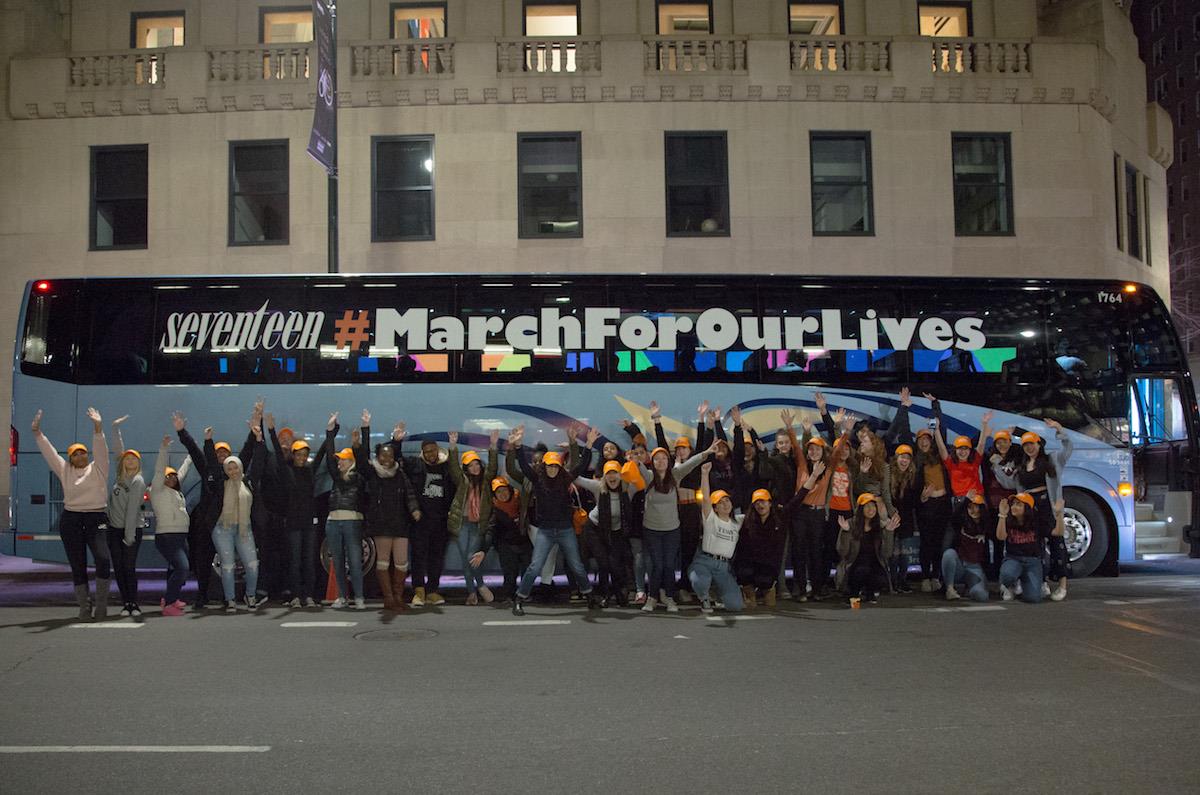
Group Photo at Hearst Tower NYC_Joseph Storch/Seventeen. March 24, 2018
On what they would have tattooed upon their brains that would be there forever and no one could ever forget about them:
Kristin Koch: The motto I sort of grew up living by, in many ways inspired by Seventeen, and that I hope to impart upon our audience going forward is be the change that you wish to see in the world. And that’s really what I hope to bring to Seventeen everyday through our programming. We have a lot of fun and passion and beauty too, but a huge part of what Seventeen is empowering teens to live their dreams and change the world. And it’s something that I try and do through my job everyday as well.
Joey Bartolomeo: Something that I’ve actually said to girls that I’ve spoken to is embrace the curls, because I have curly hair. I spent decades trying to manage it and when I finally figured out how to do it, and I went with the curl and didn’t try to straighten it, it changed my life. And I know that sounds like a crazy statement, but when you stop fighting against things, like who you really are, it still takes work to get my hair to look the way it does, but I’m not in a constant struggle. And the message that I want girls to get out of that is go with who you are. Don’t try to reshape yourself, to fit into something or fight against something.
On what keeps them up at night:
Joey Bartolomeo: There is so much, honestly. I think a lot, because it’s really on our minds lately, about this gun violence issue. And just the idea that everyone, teens, and like Kristin and I said, we’ve also got young kids, and just the idea of not feeling safe. And that’s not just in schools, but that’s in neighborhoods, because we obviously know that gun violence is not just something that’s limited to schools. There are teens facing this every single day across the country, just walking down the street.
Kristin Koch: For me, one of the things that we talk about all of the time is just making sure that young people are still going to have access to control over their bodies and their choices. That they can go use the bathroom that they feel comfortable using and that they don’t have to hide who they are for fear of some sort of retribution or somebody attacking them.
And now the lightly edited transcript of the Mr. Magazine™ interview with Joey Bartolomeo, executive editor, and Kristin Koch, digital director, Seventeen magazine.
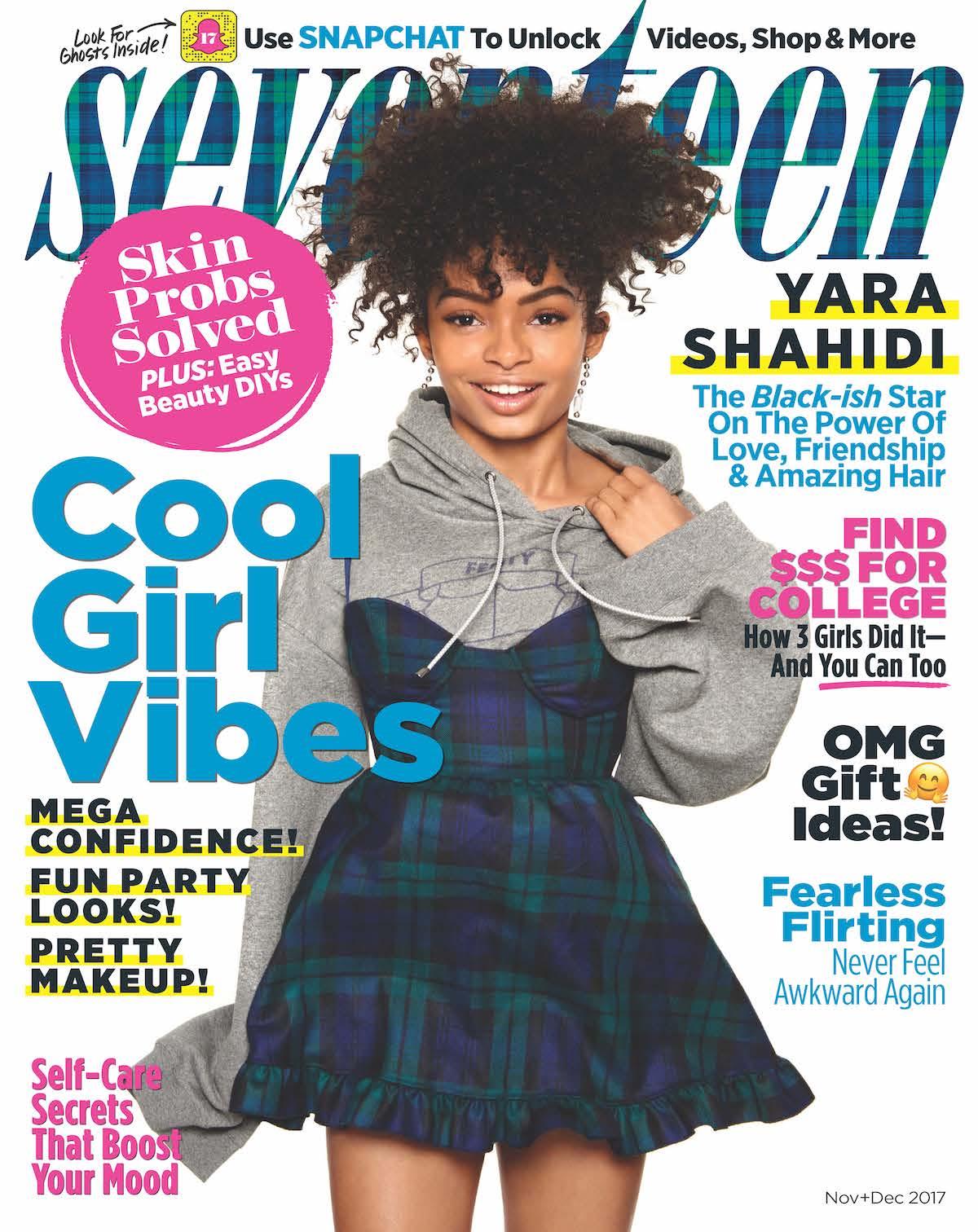
Seventeen Magazine, which started in 1944, was aimed at the 12-19-year-olds then. And I read in the press release that this was the biggest moment for teens since Vietnam. Tell me more about the audience of Seventeen magazine today and why do you say that they are social media savvy? Update us on the status of the audience for the Seventeen brand today.
Kristin Koch: Our audience is incredibly powerful. Social media has enabled them to activate in new ways. In addition, obviously, we’re still seeing them mobilize in real person and go to organized marches, protests and walkouts, but now they’re able to reach a larger audience. They’re able to have their voices stretch across multiple platforms using social media. They’re able to tap into celebrities; they’re able to talk to politicians; they’re able to get their voices and their messages really heard.
And Seventeen has been a platform for teen voices and we’ve been there to really help amplify those voices and effect change. So, as we see teens use their voices and these platforms to effect change and to campaign for social justice, we’ve really been there alongside them campaigning.
If teens today are that social media savvy, why do they need a brand, such as Seventeen, that has been so rooted in print?
Joey Bartolomeo: They’re still getting a lot of information from a lot of places and when you’re talking about print in particular, we’re kind of tuning out the noise for them. And so they come to print to really get a more curated experience and to find out things that they may not be getting on social media or from their friends. We’re this big sister that’s there for them. The things that we cover in the magazine and online are sometimes similar and sometimes different. There are still things in the magazine that are there for them. And who doesn’t want to see themselves in print, let’s be honest. It’s very special.
In print, what we love to do is highlight girls who are, as Kristin said, using their voices to make change in the world, but then they’re also getting things from our editors, such as fashion and beauty, but it’s coming from experts and not just from watching a YouTube video or picking up something from Instagram. We’re talking to dermatologists when it comes to beauty and we have our fashion editors who they really trust and admire, so they are getting a lot out of the print magazine as well. And one thing that girls have told me before is that the magazine doesn’t drain their phone batteries and we know how important that is.
Once, a former publisher of Seventeen told me that she viewed the magazine as a friend with benefits, but with a PG rating.
Joey Bartolomeo: I think that’s a very good way to put it. We cover topics related to sex, but we do it in such a way that we’re definitely not R-rated. We just want girls to have the information they need to make smart choices, so we’re not telling them how to have sex, we’re telling them what information they need to know about their bodies and their minds before they go and make a decision that could really affect their lives.
Recently, you went beyond sex, fashion and beauty; you entered the political realms by chartering a bus to take 30 New York City teens who could not afford to go on their own to join the “March for Our Lives” in Washington, DC. Are we seeing a change in the content of magazine brands, especially those in the teen space?
Joey Bartolomeo: These are things that Seventeen has covered from the start of the magazine. Activism, helping out different people, using your voice; so, no, I think that the idea of teens speaking up and fighting for things has been something that Seventeen has been behind for decades. Sometimes you might hear more about it in the media now, but we know that Gen Z, and those are our readers right now, they’re so into this. They’re activists, and we’ve been highlighting that for years now. And the millennials before that. So, it’s not as new as people think it is. We know that they’ve been doing this and Seventeen has been doing this for decades.
Kristin Koch: It’s sort of like what you said with the Vietnam War; teens have always been at the helm of these movements, students advocating for change. Of course, today they have many more tools to get their voices out there. And we’re really the teens’ guide to navigating; high school and college are some of the trickiest, most confusing times in your life. We know teens are smart and savvy, but they’re still looking for guidance and they’re still looking to us for answers.
And we’re always here for them to get them through these tough times and to help them, like Joey said, to make smart decisions for their bodies and minds, and to effect change. And to help them get the tools to learn how to be activists; how to organize together. We’re a great source to help connect them. Just like on the bus we’re going to be connecting teens from different organizations, all of whom are really passionate about fighting for change and fighting against gun violence. So, we’re able to bring them together and help to enable them to use their voices and go to this rally to fight for a cause that they feel really strongly and passionately about. And that affects them every single day.
Joey Bartolomeo: And if I could add one more thing, I think what Seventeen is really great at is highlighting teen’s voices and we really focus on that. We want to hear from the girls, so it’s not adults talking and telling stories, it’s the teens.
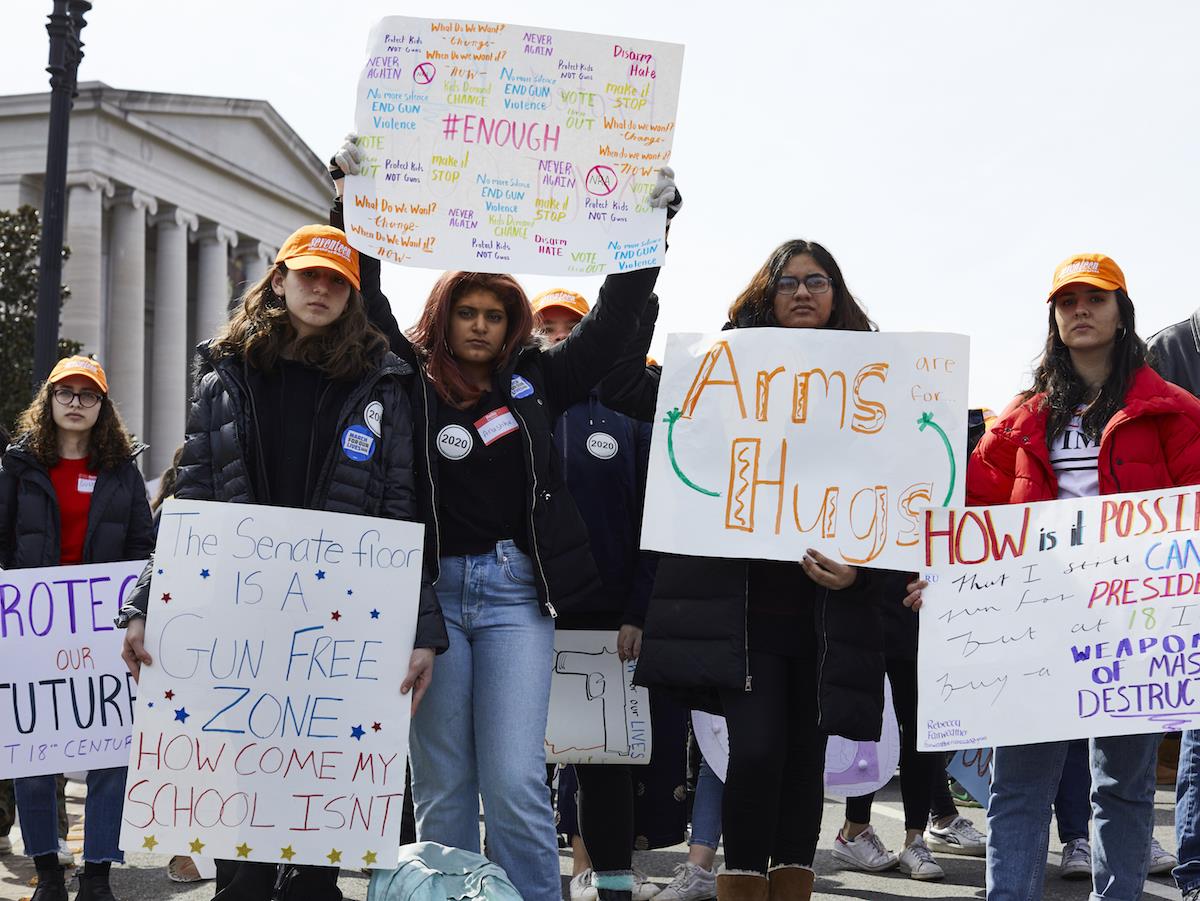
Group Photo in DC_Allie Holloway/Seventeen. March 24, 2018
Historically speaking, magazines have always either reflected or initiated what’s going on in society. Where do you see Seventeen? Is it a reflection of the teens in the United States or is it initiating things for the teens?
Joey Bartolomeo: We really let the girls lead us on a lot of things. We see what they’re interested in and what they’re fighting for. And obviously, we look around and we know what the big issues are in the world of teens. So, we really try to follow their lead. We’re not pushing an agenda on them; we see what’s important to them, whether it’s letting transgender kids in high schools use the bathroom of their choice, or getting proper sex-ed in their schools. There was one girl that we featured who was protesting the Dakota Access Pipeline. These are things that are meaningful to teens and we just want to help show that if you’re a teen, maybe you can’t vote or maybe you don’t think that you have any power, but you really do and you can effect change.
Kristin Koch: We’re also helping to bring to light issues that really matter to them and should matter to them. And we’re making sure that they’re aware of everything that’s affecting them. And as Joey said, they may not be able to vote, but we want to make sure that they’re empowered to have access to information and to be able to know about the issues that are impacting their lives. So, we’re covering these issues and bringing them to the teens, but we’re coming to them with a perspective of what matters to them, how is this going to affect them, how can they create change as teens, not as adults.
How easy or hard has the change been, going from a single platform, ink on paper, to a multiplatform, if you name it, you exist on it? What were some of the difficulties in that transition or was it a walk in a rose garden for the brand?
Kristin Koch: Obviously, it’s always a challenge to be constantly launching on new platforms, teens are really at the forefront of what the newest technologies and newest social media platforms are. They’re constantly finding new ways to connect. As their parents jump onto one platform, they may jump onto the next. So, we always have to be on top of what’s new, but it has really enabled us to spread our message and to reach a greater audience, and reach teens on different platforms.
So, as an extension, we’re all one brand. We have the same goals, but on different platforms we’re able to talk to them in different ways, we’re able to react to different kinds of events in different ways. Where the magazine might be able to profile and give more in depth and give the stories that readers really want to relish and spend time in; on social media we can cover the stuff in real time and we can also highlight teens on social media as well as in the magazine. You’re always going to see young people on our pages; you’re always going to see them on our feeds. We’re tackling many of the same issues, we’re just doing them in different ways that make sense for that platform and that audience.
And I think Seventeen is such a good example of how we’ve been a very nimble team, we’ll transition really quickly depending on how our audience changes and how they’re consuming content. This year on digital, for example, we really shifted away from just programming content strictly for the website to focus on video and social-first programming, because that’s where now you see teens reading a lot of their media and news, on Snapchat’s Discover. It’s almost like a mini-magazine experience. And so, we launched on Snapchat in September. We relaunched our YouTube channel because lots of teens are consuming video now and they’re using YouTube as a their TV, but also as their Google in many ways, and that’s where they search for answers to things.
So, we’re really giving a 360 approach to their lives and they turn to Seventeen as a guide. As Joey said, it’s like their big sister, and we’re their best friend and biggest supporter. And so, it’s challenging to always be on every platform for them, but it enables us to have a constant conversation, to stay on top of everything they care about.
And it’s a two-way street, it’s not just us blasting out information to them, we’re really communicating with them. We’re building relationships, they know our editor, and as they see their videos, they connect to them. They talk to them on social media, so we’re really building a community.
Joey Bartolomeo: And one cool thing that we’ve done in print is to start including Snapcodes with some of our stories. What we’ll do is have a story and then it’ll drive to…we had one with a playlist, and it’ll drive to a story on our website where they can check out all of the music on the playlist. So, we know that they may have their phones in their hands while they’re reading the print magazine, and we’re giving them a really full experience and coming at them in a way that they actually consume things.
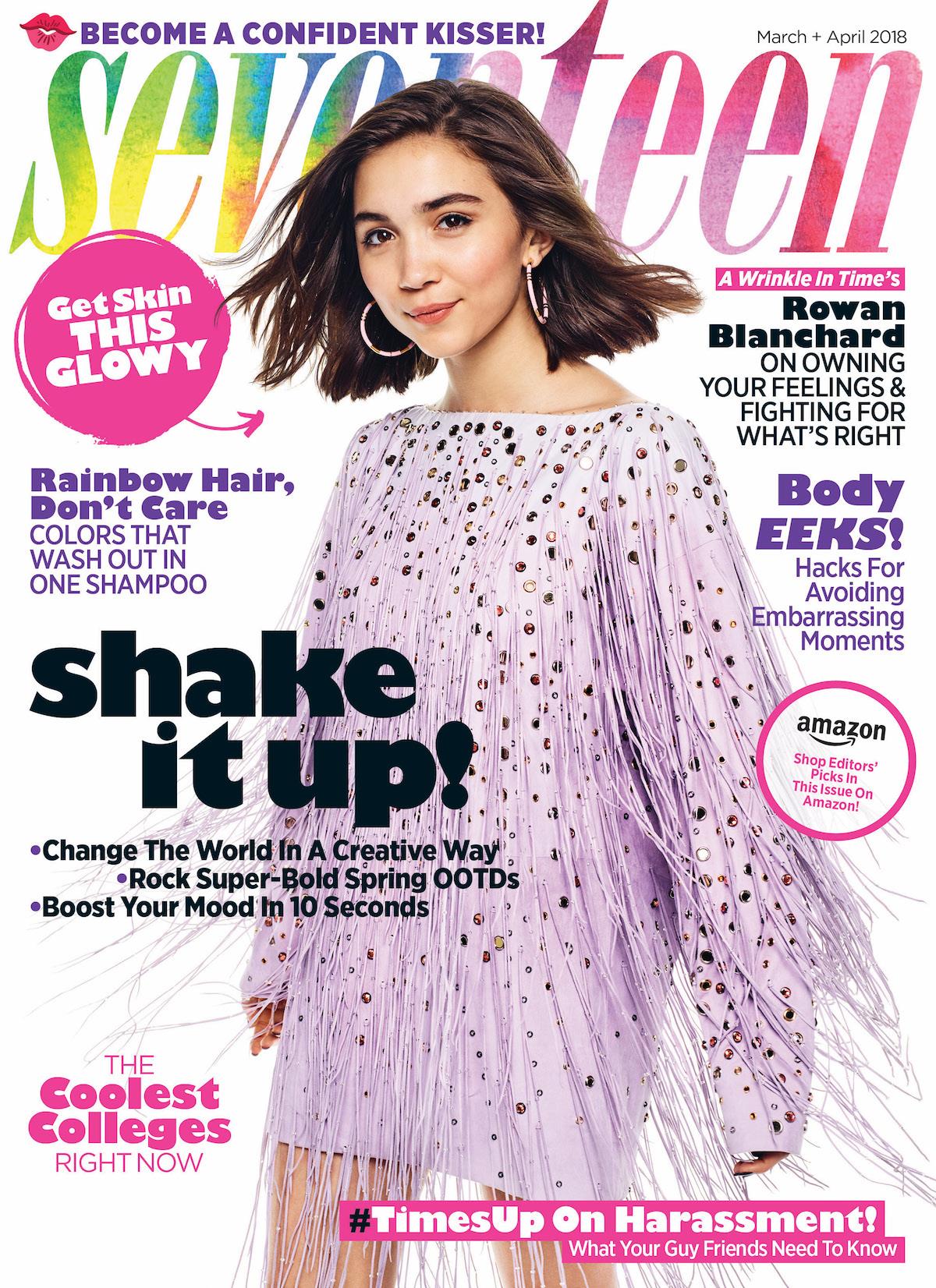
Seventeen is the last-standing of all of the mass, major teen magazines in print. What is the brand’s secret of survivability compared to all of the other magazines, whether it was Teen People or Young Miss or Teen Vogue? Why do you think Seventeen continues in print and all of its other platforms?
Joey Bartolomeo: First of all, having Hearst behind us is amazing. We have great support from David Carey and Joanna Coles and everybody. They have all been really behind us and they were really behind us in getting the bus for the march and I think that’s so important, that they see the value in the Seventeen brand and what it means to people. Another thing is Seventeen, like you said, has been around for 74 years. So, there are a lot of people in the world, in this country, who have read Seventeen. And they know that it’s a brand that they can trust. They read it as teens; they’re daughters read it as teens; and they want their kids to read it.
We hear from moms and grandparents all of the time saying they love our magazine and that they’re getting it for their daughters, and we hear from the daughters, who also say they love the magazine and that they’re still reading it and they’re in college. So, there’s something very special about it. And I think that people really do have that connection, That’s not to say that the magazines that haven’t survived didn’t do great things, because they really did, but I think that Seventeen has lasted so long because it’s trustworthy and we have great content and I believe people feel really connected to it, because again, it’s for the girls. The girls read it, they see themselves in it and that’s so important to teens, to really feel like they’re getting a genuine product.
It’s really amazing. Whenever we meet girls and if we say that Seventeen is doing this or that, we hear people get very excited about it. People love the brand. Girls know the brand of Seventeen and they love it. It’s exciting for us to get to interact with them when we meet them, because we know how important it is in their lives. And we all grew up reading Seventeen and it holds a very special place in our hearts as well. We try to bring to it the things that it brought to us. In many ways we’re answering the questions that maybe they’re too embarrassed to ask or helping them achieve their dreams. Or helping them figure things out and giving them a place to potentially see themselves, and maybe be featured and to help them do really amazing things.
It’s really also been an honor for us to highlight all of the teens who do such amazing things because growing up, we would read this magazine and we would be so inspired by other teens doing cool things. And now we have the chance to do that and to offer them multiple platforms to be able to amplify their voices and their messages.
What’s next for Seventeen?
Kristin Koch: What’s so exciting about Seventeen is as you said, this brand holds such a special place in so many people’s hearts, and so we’ve been able to really keep our core areas, while also expanding, and every day there’s something new. We’ve launched on Musical.ly; we’ve launched on Snapchat; we’re going to be ramping up on Snapchat; we tend to invest more in activism, such as the bus. It was a huge experience that we brought to the teens. We did a video booth at the march as well, where students could take videos explaining why they were marching. Hearst donated money to Everytown for Gun Safety every time a video was posted. That was a really exciting way that we could get involved in the march and also to help show that their voices mattered and their marching mattered and to help raise money for a great cause.
Now, we’re looking to other ways that we can activate. There’s a lot happening in the world right now that’s really impacting teens. We launched a kind of sister community to Seventeen called Here and it is focused on our LGBTQ readers and their allies. It’s a Facebook group as well as a vertical on Seventeen.com and an Instagram channel. We’ve had a great response to that and we’re excited to grow it and we’re excited to see how digital and print can work together to create more live events, to create more and different campaigns around issues that matter. And to continue to advocate for teens and stand behind their fighting for different changes and fighting to make this world a better, more just place for them, while also guiding them through the tricky and fun and terrifying years as they grow from teens into adults.
Joey Bartolomeo: And something that I think sets Kristin and I apart from other brands or other teams here, is that we actually do work a lot together So for Seventeen print and digital, we’re always communicating, we have regular meetings; we really try to see how we can sync up in special ways. And one of those things that is really important to us is our “Perfectly Me” initiative, which promotes body confidence and it’s something that we do every October.
We worked really hard together on the bus trip to Washington, D.C. because we really wanted to make it not just a ride down for the girls, but we wanted to make it an event and something that they would get a lot out of and make it special, because we had them on the bus with us for at least eight hours. So, we actually worked on things for the bus, not just the experience of the march. We hoped that they would come away with a really full experience from the day.
Kristin Koch: I’ll also say that I think it’s been so clear right now that teens are changing the world and they’re our future and they’re going to remake this world into a more just, diverse, equitable place. And I see so much potential for Seventeen because we’re right there beside them, helping to guide them, helping to amplify their voices, as we said. And so there’s no limit on where Seventeen can go, because there’s really no limit on what teens can do and on what teens are doing.
Joey Bartolomeo: And we’re so excited that the rest of the world is figuring out how amazing these teens are right now. We hope that we will be able to share so many of their stories in print and on digital going forward. And to really help this generation get their messages out and become the leaders that they clearly are. When they get to be in college and beyond, we’re going to see so much from our readers now. It’s going to be amazing.
Any fear of backlash: hashtag fake news, hashtag fake Seventeen?
Kristin Koch: No, Seventeen is such a trusted brand and what we’ve seen is that our audience is so excited to get information from us and to work with us. They care about the issues that we’re talking about. In large part, as Joey said, we are amplifying their voices; we’re talking to them; we’re featuring them; we’re telling their stories. The world sort of woke up to the idea that teens are political, but they’ve always been. They’ve always been really invested in this, and I think everyone trusts Seventeen. We have amazing stories; we have great research, and we’re really here to guide teens along the way.
If I showed up unexpectedly at your home one evening after work, what would I find you doing? Having a glass of wine; reading a magazine; cooking; watching TV; or something else?
Joey Bartolomeo: What time is it you’re coming? (Laughs)
9:15 in the evening.
Joey Bartolomeo: 9:15 p.m.? I am probably watching Riverdale on the DVR because I need to catch up on that show. I like to make sure that I’m in tune with what our readers are interested in, but I also do think Riverdale is a great show. After that, I’m probably asleep, because I have a three and a half year old. So, it’s long days.
Kristin Koch: I’m probably right alongside Joey, binge watching one of our shows that our audience is obsessed with, Riverdale being one of the big ones. Or we program 24/7 on digital, so I’m probably still making sure there is no breaking news. If a celebrity our readers are following is getting married, I am going to be making sure that my entire team is posting, checking our Instagram, watching YouTube videos, making sure we’re on top of everything. After that, probably like Joey, going to bed. I have a young son too. (Laughs)
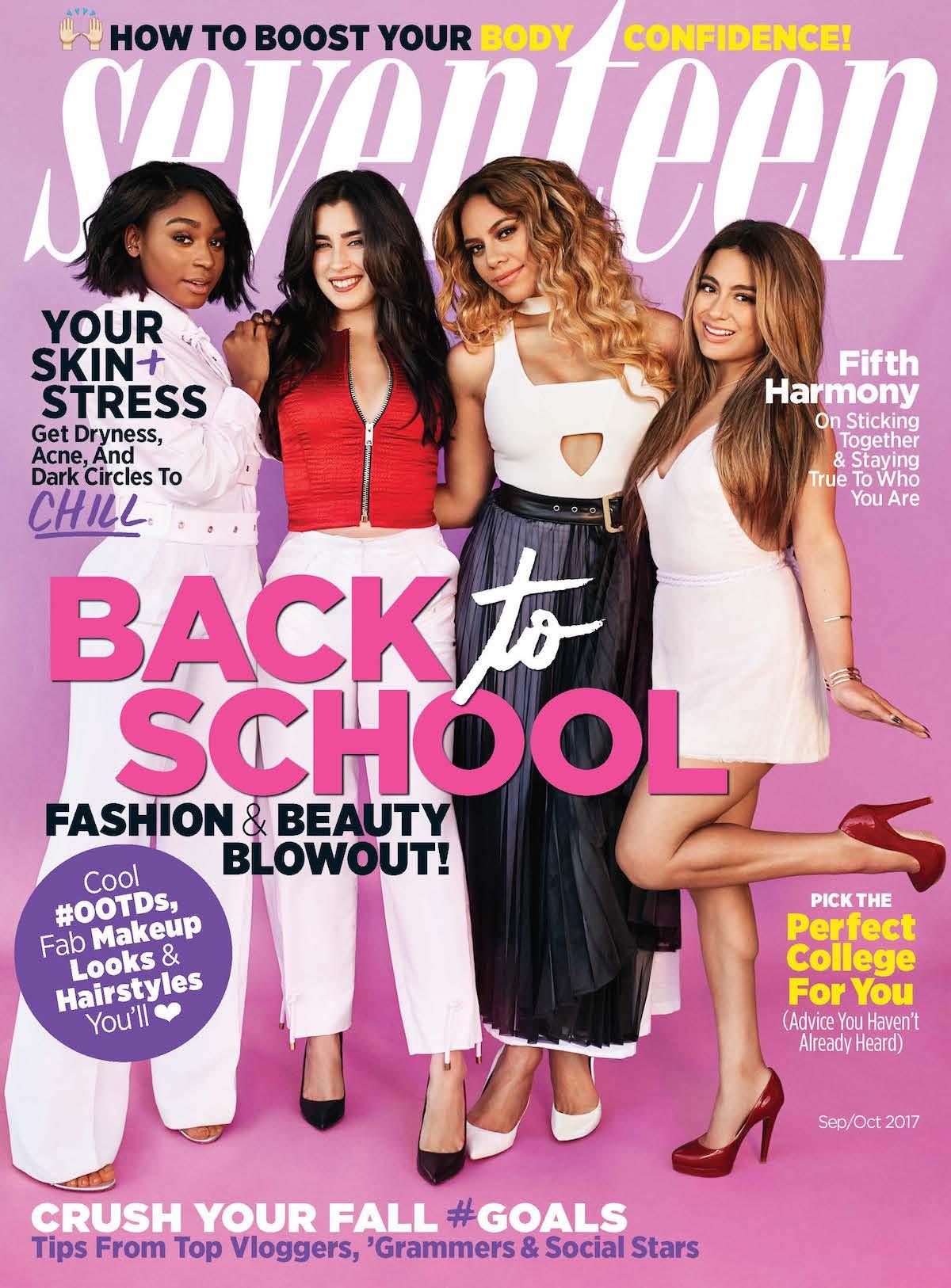
If you could have one thing tattooed upon your brain that no one would ever forget about you, what would it be?
Kristin Koch: The motto I sort of grew up living by, in many ways inspired by Seventeen, and that I hope to impart upon our audience going forward is be the change that you wish to see in the world. And that’s really what I hope to bring to Seventeen everyday through our programming. We have a lot of fun and passion and beauty too, but a huge part of what Seventeen is empowering teens to live their dreams and change the world. And it’s something that I try and do through my job everyday as well.
Joey Bartolomeo: Something that I’ve actually said to girls that I’ve spoken to is embrace the curls, because I have curly hair. I spent decades trying to manage it and when I finally figured out how to do it, and I went with the curl and didn’t try to straighten it, it changed my life. And I know that sounds like a crazy statement, but when you stop fighting against things, like who you really are, it still takes work to get my hair to look the way it does, but I’m not in a constant struggle. And the message that I want girls to get out of that is go with who you are. Don’t try to reshape yourself, to fit into something or fight against something.
If you’re gay, don’t fight against it, go with it; go with who you are. Go with what your interests are and go with what makes you happy. That doesn’t mean it’s always going to be easy, but your life will feel so much better and you’ll be so much happier when you look in the mirror and you’re not struggling every day. If you just really embrace who you are. And I think that’s a really important message that we put into Seventeen all of the time. It’s about feeling confident in who you are and I really want girls to feel that way.
My typical last question; what keeps you up at night?
Joey Bartolomeo: There is so much, honestly. I think a lot, because it’s really on our minds lately, about this gun violence issue. And just the idea that everyone, teens, and like Kristin and I said, we’ve also got young kids, and just the idea of not feeling safe. And that’s not just in schools, but that’s in neighborhoods, because we obviously know that gun violence is not just something that’s limited to schools. There are teens facing this every single day across the country, just walking down the street.
It’s something lately that is on my mind. I hope that we can live in a safer place and I hope that young people can really effect some change and get something happening, so they don’t have to feel so scared every day wherever they are.
Kristin Koch: For me, one of the things that we talk about all of the time is just making sure that young people are still going to have access to control over their bodies and their choices. That they can go use the bathroom that they feel comfortable using and that they don’t have to hide who they are for fear of some sort of retribution or somebody attacking them.
We spend so much time encouraging teens to really embrace who they are and embrace the curls, as Joey said. We work hard every day to make sure that we’re able to let them know about what’s happening; how to fight against any legislation or any hatred that is preventing them from being able to be themselves and feel comfortable. And to be able to just be teens and enjoy that, and to grow up into adults who are able to embrace fully who they are and to be accepted. And feel comfortable doing that.
Joey Bartolomeo: I read the emails that come in from readers and they’re not always teens who are writing in, and I send then to Kristin sometimes. Some people have these attitudes that I think are so harmful to girls and that’s something that we talk about a lot. And it’s just unbelievable to me the way that some people refer to girls and the things that they have to fight against.
And it’s something that shocks me every time I get one of these emails. All of the sexism. But with things like the Me Too movement, we’re hoping things will change and they’ll feel safer and the workplace will be for effective, but we’re still seeing so many stories about sexual assault and that young women’s rights are being diluted in the halls of Congress. We just want to continue to advocate for young people and that they are able to own their choices. That they’re able to help identify what sexual harassment is. And hopefully all the work that we’re doing now will mean in the future our sons and daughters won’t have to face this in the same way that so many women have had to.
And that goes into bullying, body shaming, everything like that as well. Social media has a lot of great things about it and then it has a lot of downsides. And it’s something that we see girls struggle with all of the time. We just hope that if we can have Seventeen be a positive, encouraging platform for them in print and online, then hopefully that will help them spread positive messages and really get past these troubles that are out there, and the people who have these negative comments. And who are trying to take girls down.
Thank you both.
More like this
The Mr. Magazine™ Interview: Print is never going to go away, says Hearst’s Joanna Coles









